A relationship trope that was normalised by Boomers, Gen X and Millennials has Gen Zers screwing up their faces in disgust.
A relationship trope that was normalised by Boomers, Gen X and Millennials has Gen Zers screwing up their faces in disgust.
Age-gap relationships, as far as I can remember, have been considered normal and no big deal – as long as they meet certain criteria.
When I was in high school, it was all about finding someone older with a driver’s license. Then in my early 20s, I had countless friends date men in their 30s and above.
There is of course a gendered aspect to what’s considered more socially acceptable.
If a man is older than his partner, half the time, nobody even notices. But if a woman is older, it’s a national scandal in celebrity land and a micro-scandal if it happens in your friend group.
However when news.com.au asked young Aussies for their thoughts on age gaps, regardless of gender responses largely ranged from to “I wouldn’t” to “hell no”.
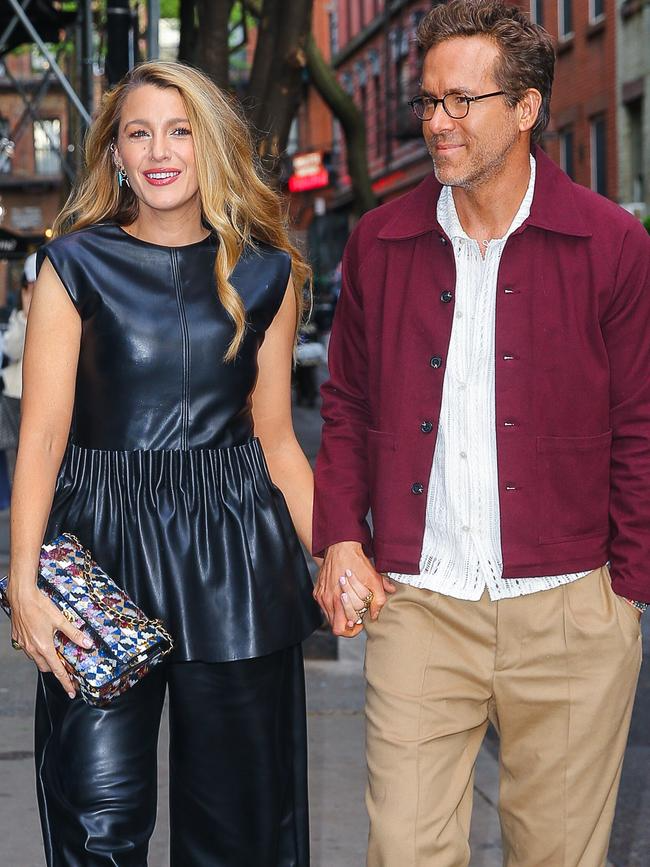
Blake Lively and Ryan Reynolds have a 10 year age gap. Picture: by MEGA/GC Images
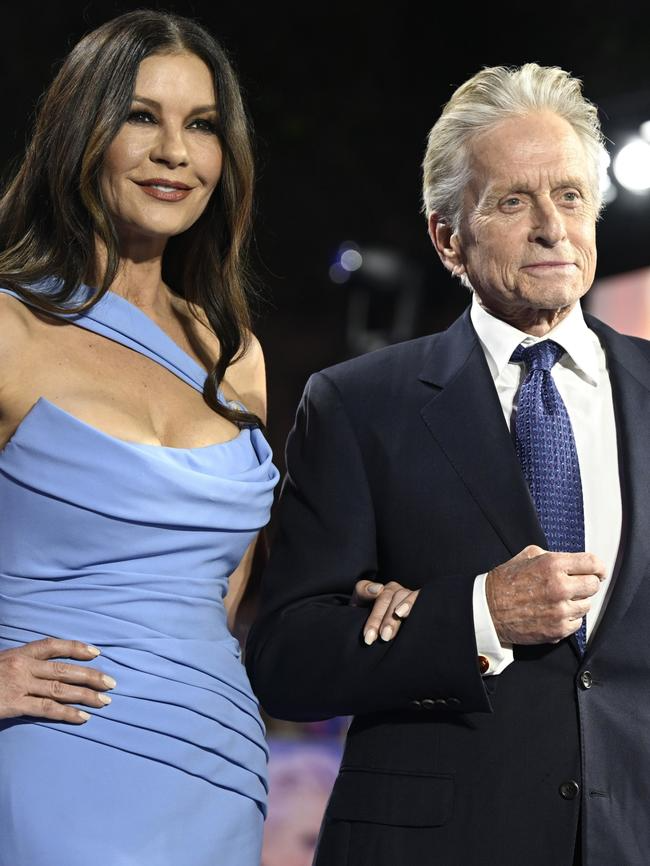
There’s two decades between Catherine and Michael. Picture: Gareth Cattermole/Getty Images for Disney
Regardless of what you think of them, age-gap romances aren’t just something you see at the local pub; they’ve also been glamorised (and occasionally scandalised) in pop culture.
Baby Boomer movie star George Clooney is 17 years older than his wife, Amal Clooney. Fellow Boomer Michael Douglas is 25 years older than his A-lister wife, Catherine Zeta-Jones.
There’s also a decade between Blake Lively and Ryan Reynolds, 12 years between Beyoncé and Jay-Z, and Nick Jonas is a decade younger than Priyanka Chopra.
Gen Zers aren’t nearly as interested in embracing age-gap romances, with some of the most famous people in the generation dating people their own age.
For example, power couple Tom Holland, 29, and Zendaya, 28, have an age gap of just three months.
Timothee Chalamet, 29, is two years older than Kylie Jenner, and Nicola Peltz-Beckham, 30, is only four years older than Brooklyn Beckham.
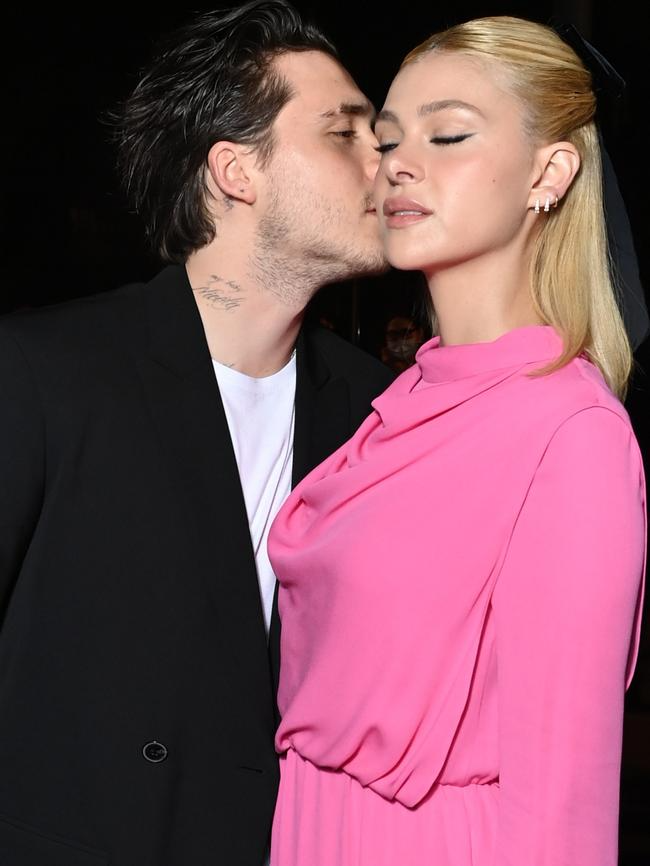
Nicola is just four years older. Picture: Pascal Le Segretain/Getty Images
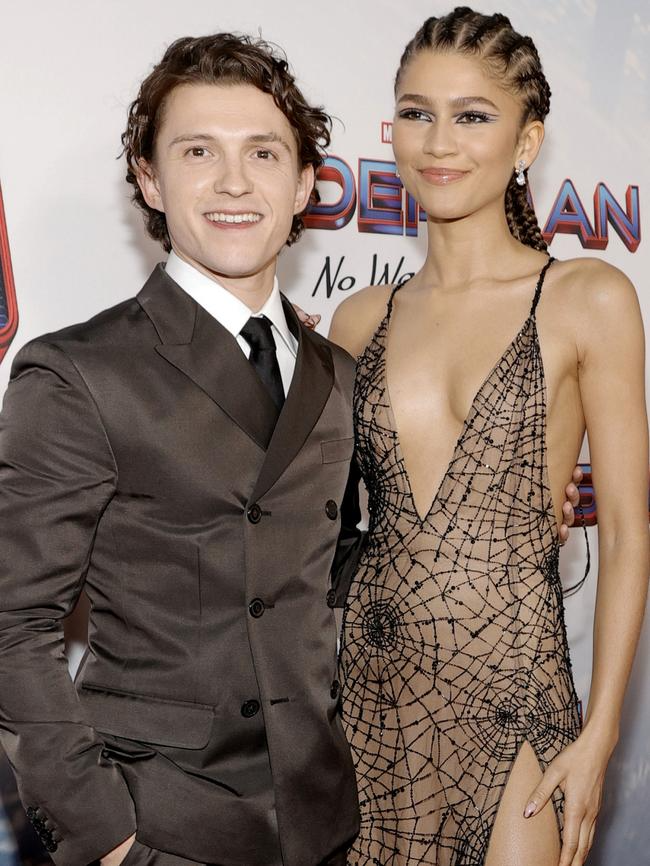
Power couple Tom Holland and Zendaya don’t even have an age gap. Picture: Amy Sussman/Getty Images
When news.com.au descended on the University of Technology campus in Sydney to gauge young people’s views on age-gap romances, their responses were eye-opening.
To get to the heart of the issue, we asked Gen Zers if they thought a 10-year age gap was too much or totally fine.
It wasn’t a completely unanimous response.
For example, one young girl, wearing a fun yellow shirt (yes, yellow is trendy now, and not just for Big Bird), said she was fine with it.
“No, I don’t think it is too much,” she said.
Her logic?
“Because a guy has a slower maturing age.”
Similarly, a 19-year-old with blonde hair responded, “Hell yeah” when I asked if she would date a 29-year-old.
A male uni student outdid her enthusiasm, saying he said saw nothing wrong with age gaps and, in fact, he encourages them.
“Get that bread,” he instructed.
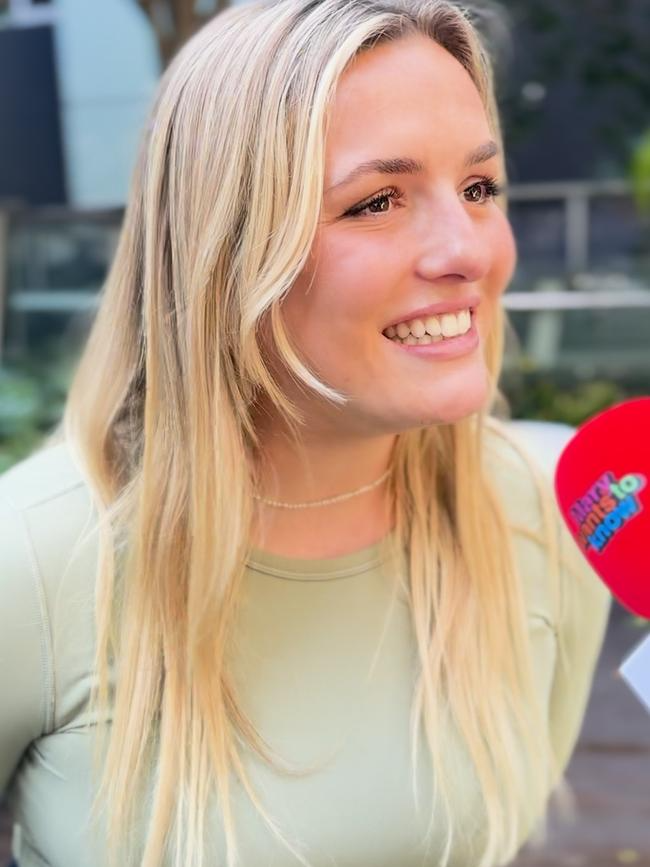
She said ‘hell yes’ to age gaps. Picture: news.com.au
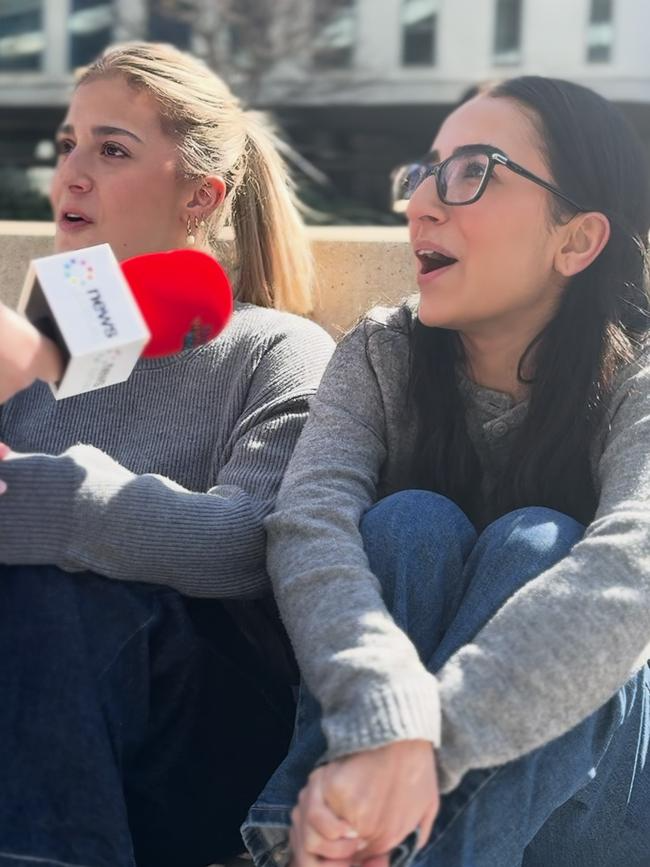
Other young people were less enthused at the idea. Picture: news.com.au
In general, though, the bulk of young people didn’t see themselves dating someone a whole decade older.
One rogue and, dare I say, insensitive, student claimed she wouldn’t even date a 27-year-old because that is “old”.
All in all, the majority of Gen Zers we spoke to weren’t sold on age-gap romances.
“I wouldn’t date a 30-year-old,” one university student informed me, and her facial expression made it clear that she didn’t even like thinking about it.
Another young woman said a 10-year age gap held no appeal to her, saying it “felt like too much”, noting she would have different interest and be in a different life stage to the other person.
That theme continued; young people made it clear that age-gap romances are for old people, well, people they think are old.

Young people aren’t that interested in age-gap romances. Picture: news.com.au
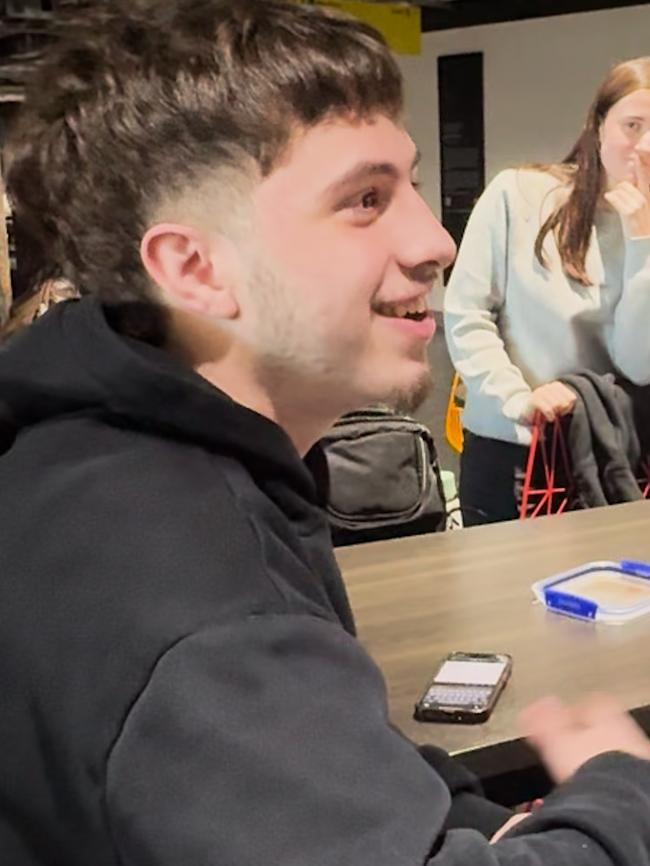
In fact, they don’t seem keen at all. Picture: news.com.au
A young girl chilling on the grass said it comes down to what stage of life you are in.
“It depends. If you’re 30 and 40, that is fine, but if you’re 20 and 30, that is a bigger age gap,” she argued.
Other young people took a much more hard-line response to the question.
“Just no,” one young guy informed me, before his mate jumped in and offered a more diplomatic response.
“It depends on how old they are, like 50 and 40, it isn’t the worst thing in the world,” he said, adding that it definitely gets to a point with younger people where it is a “no”.
He then shared that he was 18 and wouldn’t even consider dating a 28-year-old, even if she was “hot”.
So, there you have it: the age-gap romance is not something Gen Zers are prepared to endure in 2025.
Psychologist Carly Dober told news.com.au age-gap relationships aren’t automatically problematic, but it can lead to a power imbalance.
“When there is cause for concern is when there is a power imbalance that is yielded in some way to control the other person, or to make them feel lesser than,” she explained.
“Age differences in relationships can be problematic when typically the older person, who generally has more life experience, often more resources, and is generally developmentally ahead of their younger partner, takes advantage of their younger partner’s inexperience, vulnerability, and naivety.”

In her line of work, Ms Dober has seen first-hand how an age-gap relationship can become unhealthy.
“It is very common in unhealthy relationship dynamics where there is an age gap for people to struggle with how the more powerful one in the relationship treats them, the concerns from their friends and family, and how they still love the person even with the poor treatment,” she said.
“In healthy relationships where there is a significant age gap, the biggest issue that the couples struggles with is stigma, which includes rude or personal questions from friends and family, judgments from colleagues and the general population when they are spending time together out in public.
“Sometimes (there are also) fertility struggles, if one person cannot have more children biologically or doesn’t want anymore, while the younger party might.”